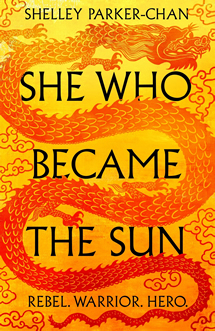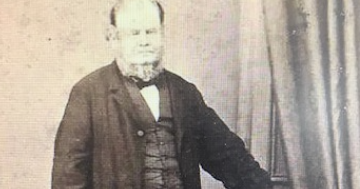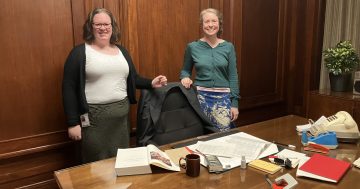Reviewed by Robert Goodman.
By Shelley Parker-Chan, Pan Macmillan, $32.99.
 When it starts, Australian author Shelley Parker-Chan’s debut She Who Became the Sun feels like a retelling of the legend of Mulan. But that impression is very quickly put to one side as Parker-Chan crafts her own vision of 14th Century China under Mongol rule, its politics and the battles, seen through the eyes of two very distinct individuals on opposite sides, but also very much as it turns out, on their own side.
When it starts, Australian author Shelley Parker-Chan’s debut She Who Became the Sun feels like a retelling of the legend of Mulan. But that impression is very quickly put to one side as Parker-Chan crafts her own vision of 14th Century China under Mongol rule, its politics and the battles, seen through the eyes of two very distinct individuals on opposite sides, but also very much as it turns out, on their own side.
She Who Became the Sun opens in the middle of a drought. A young girl scavenges for food as her fellow villagers slowly die around her. When her father is killed and her brother dies the girl takes on her brother’s name, Zhu Chongba, and with it his foretold destiny of greatness which she is determined to fulfil. Zhu finds herself in a monastery and dedicates her life to becoming a monk until that life too comes to an abrupt end. It is at that point that she determines to start finding her destiny and joins the Red Turban anti-Mongol forces using both her intelligence and sheer determination to rise through the ranks. At the same time, Mongol general Ouyang is also rising – successful in battle but as a eunuch looked down on by his peers and carrying a long held dream of vengeance against the people who took his family and made him as he is. When Ouyang’s circumstances change he puts his plan of vengeance into action and starts himself on a path to a new destiny. As well as being on opposite sides of a war, Ouyang and Zhu have a connection that keeps bringing them together to clash on the battlefield.
She Who Becomes the Sun does not go the way readers think it is going to go, leading to some jaw dropping reveals and reverses. But it is all consistent with Parker-Chan’s strong willed characters who carry the narrative and set it alight whenever they encounter each other. And those characters are also the centre of the book’s exploration of gender. Zhu is a woman pretending to be a man and a warrior, who finds some measure of connection with another woman. Ouyang, on the other hand, is a man who is seen by the world as a woman and is constantly having to prove himself. In this world both start as “other” but start to find some measure of acceptance of those around them as they begin to accept themselves.
She Who Became the Sun is billed as a historical fantasy. And there are some fantasy elements. Power and the right to rule is manifest by the ability to create flame or light. And Zhu is one of the few characters who is able to see ghosts and spirits, although the significance of this to the plot is fairly minimal at this point. Aside from this, Parker-Chan brings the violent history and gorgeous landscapes of 14th Century China to life – the rivers and canyons, the walled cities and Mongol tent encampments.
She Who Became the Sun is the first of what is billed as the Radiant Emperor Duology. Given this title and the single mindedness of her main characters, it will be interesting to see what surprises Parker-Chan can pack in to the follow-up.
This and over 700 more reviews can be found on Pile by The Bed.











